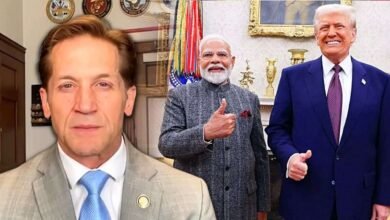
Following the theft of his identity by a friend, an Indian student in the US underwent legal proceedings, provided video evidence, and was exonerated. Even with the court’s decision in his favor, his student visa was canceled, and his SEVIS (Student and Exchange Visitor Information System) record was deactivated — putting him in jeopardy of needing to exit the country voluntarily.
This is not a singular instance. In recent weeks, numerous Indian students have been informed of their visa cancellations — even in cases where there was no misconduct or minor violations. These vary from small traffic offenses to administrative miscommunications, none of which would usually warrant such a harsh outcome.
Chand Paravathneni, an immigration lawyer based in Texas, said he’s currently representing more than 30 students in similar situations. “These students have spent lakhs of rupees, taken educational loans, and now, they’re not even allowed to complete their degrees. This is really concerning,” he told .
According to him, even a single mark on a student’s record has been enough to trigger visa termination. “The common thread among all these students is that they were flagged once — that’s all it took,” he said.
Other students were declared innocent in shoplifting and DUI cases, yet their legal status was still taken away. One person was detained for holding an International Driving Licence that was considered invalid in a specific state. Even traffic violations such as reckless driving, unrelated to alcohol or drugs, have resulted in SEVIS termination.
A student’s visa was impacted due to an incident noted at the Port of Entry ten years ago, even though they have a clean record and a valid visa. When a SEVIS record is terminated, the student is deemed out of status. They must either vacate within 15 days or attempt to legally regain their status. Not taking action might lead to official deportation and restrictions on returning. Individuals opting to depart can utilize the CBP One app, which arranges self-deportation appointments.
Paravathneni emphasized that students must explore all legal options prior to deciding to leave. “They have the option to challenge the revocation via legal means and ask for it to be overturned.” “Self-deportation must always be the final option,” he stated.






